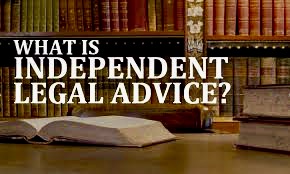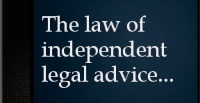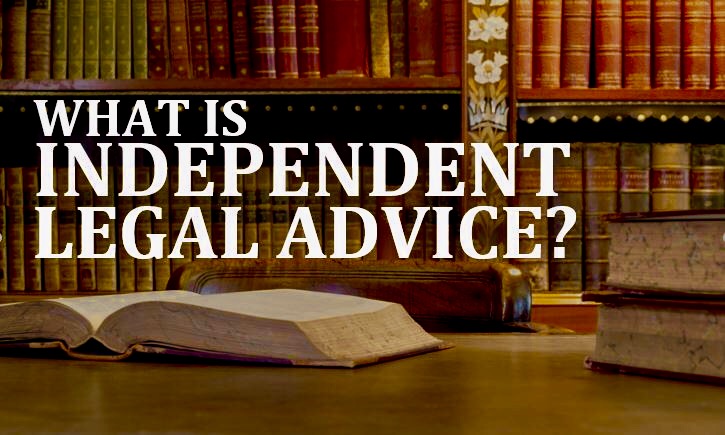Zeligs v Janes 2015 BCSC 7 cited two maritime decisions with approval that were followed in BC in Mondolese v dDelac 201BCSC 82 as to the adequacy of independent legal advice( ILA) , particularly in an undue influence case.
The absence or lack of adequacy of independent legal advice can be significant in many types of claims such as contractual and undue influence.
Legal advice is not always essential in all circumstances where undue influence is alleged.
However, the absence of independent legal advice would make the burden of proof to rebut the presumption of undue influence onerous. Dempsey v Dempsey 2010 NSSC 44
Mondonese v Delac estate 2011 BCSC 82 is a good starting point as a framework for discussing independent legal advice in the context of the presumption of undue influence in situations such as caregivers:
1. whether the party benefiting from the transaction is also present at the time the advice is given and/or at the time the documents are executed;
2. whether though technically acting for the grantor, the lawyer was engaged by and took instructions from the person alleged to be exercising the influence;
3. in a situation where the proposed transaction involves the transfer of all or substantially all of a person’s assets, whether the lawyer was aware of that fact, and discuss the financial implications with the grantor;
4. whether the lawyer inquired as to whether the donor or discuss the proposed transaction with other family members who might otherwise have benefited if the transaction did not take place.




